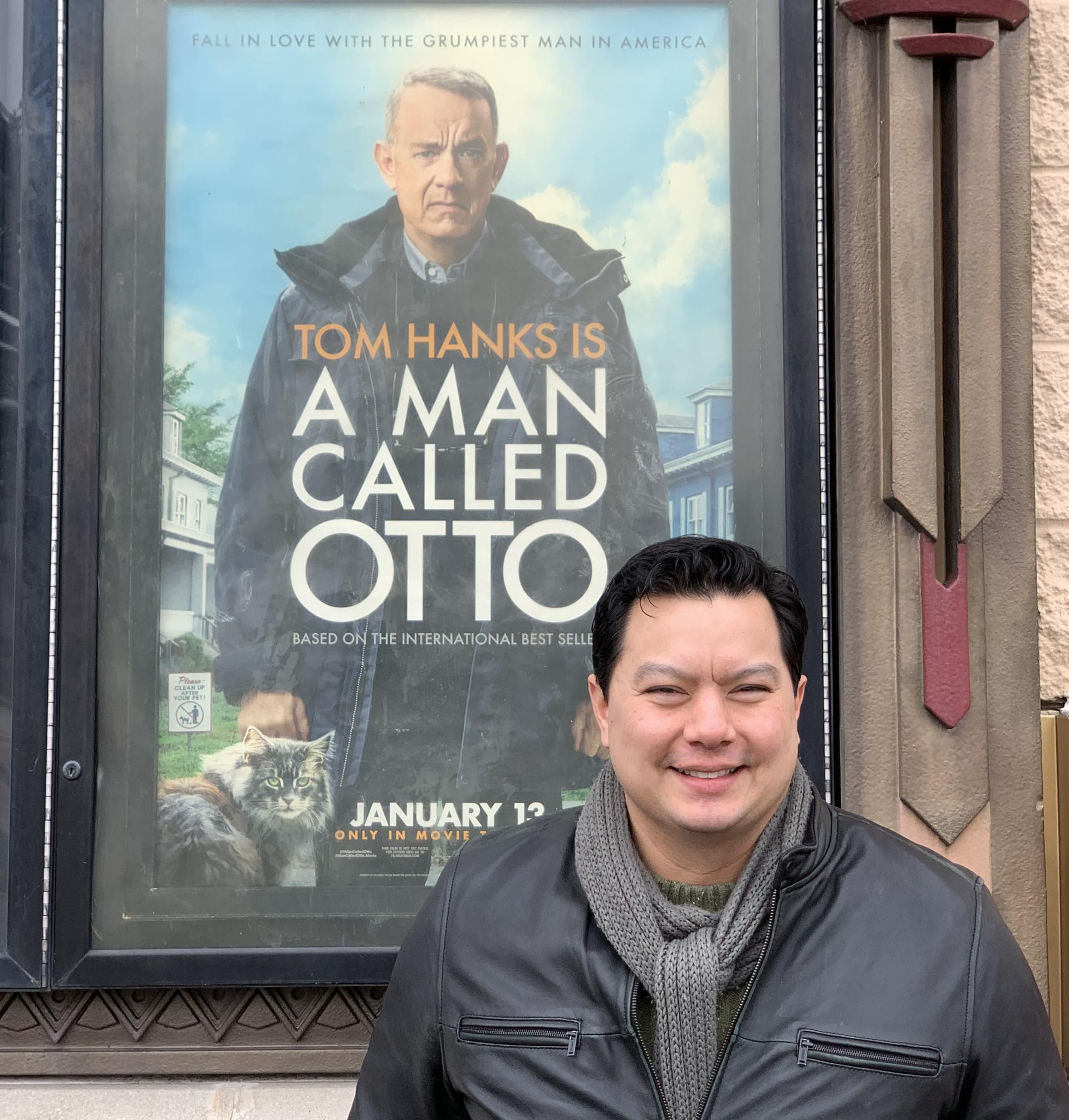Q: Have you had any special experiences meeting Tom Hanks or other actors you admire?
A: Incredibly, I’ve had quite a few within the first decade and a half of my professional career: learning from and working with JoBe Cerny, the voice of the Pillsbury Doughboy, working with Danielle Deadwyler and Timothy Simons on "Station Eleven," working with theater legends, like Mike Nussbaum, Kate Baldwin, Robert Cuccioli, Kathy Voytko, Greg Watanabe, and Joe Foronda, to name a few.
For this project, I had a handful of memorable experiences. Auditioning for and then working with Marc Forster on set is high on that list. As was meeting Rita Wilson as I walked onto set. She and Tom, as well as the entire cast and crew were incredibly welcoming and gracious. It was great to see that, even at that level of success, they hold being kind and supportive just as important as being highly skilled, focused, and professional.
During our lunch break on set, I chatted up the guy behind me in line, and then sat and ate lunch with him. A few minutes into our conversation I realized that he was David Magee, the writer of the film, and also the Oscar-nomiated writer of "Life of Pi," "Finding Neverland," (which he worked with our director on) and "Mary Poppins Returns," to name a few. We really connected through our shared background working in voiceover, which was what led to him adapting books into abridged audiobooks that he also narrated, and then into writing and adapting screenplays.
On set, I was able to act with and opposite Tom Hanks for about 10 and a half hours that day! To say that it was paradigm-shifting, might be an understatement. Being able to watch a master at their craft, see how they work in between takes, and then having the immense privilege to ply my own craft opposite them, is a gift. Tom was laser-focused, yet relaxed between takes. Midway through the afternoon, maybe because he sensed we could all use an energy boost post-lunch, he amped up the playfulness, entertaining us between takes with that youthful energy and brilliant comedic timing that he’s known for from movies like "Big" and his guest appearances on "Saturday Night Live."
Q: What are some of your goals for the next steps in your career?
My long-term goals on that front have not changed since I set them almost two decades ago. I think it’s important to set large, almost unfathomable, long-term goals that keep you inspired, like, “I want to be one of the greatest actors of my generation, creating a legendary body of work by continually deepening and showcasing my skills.” That can apply to range, depth, ease, realism, theatricality, humor, your vocal and physical instruments–whatever aspect you’d like to focus on at that time.
I set smaller, specific goals for each season, whether that be a few months or a year, so that I’m intentional in growing and honing my skills. I think I will always strive to be the best actor and teammate that I can be at the present moment.
As far as next steps, I’d love to continue to gain momentum in the film and television field. I just wrapped my second episode of a streaming TV show, that marks my first recurring character on a show. I’d love to continue into larger roles in film, as well as more recurring and season regular roles in television.

